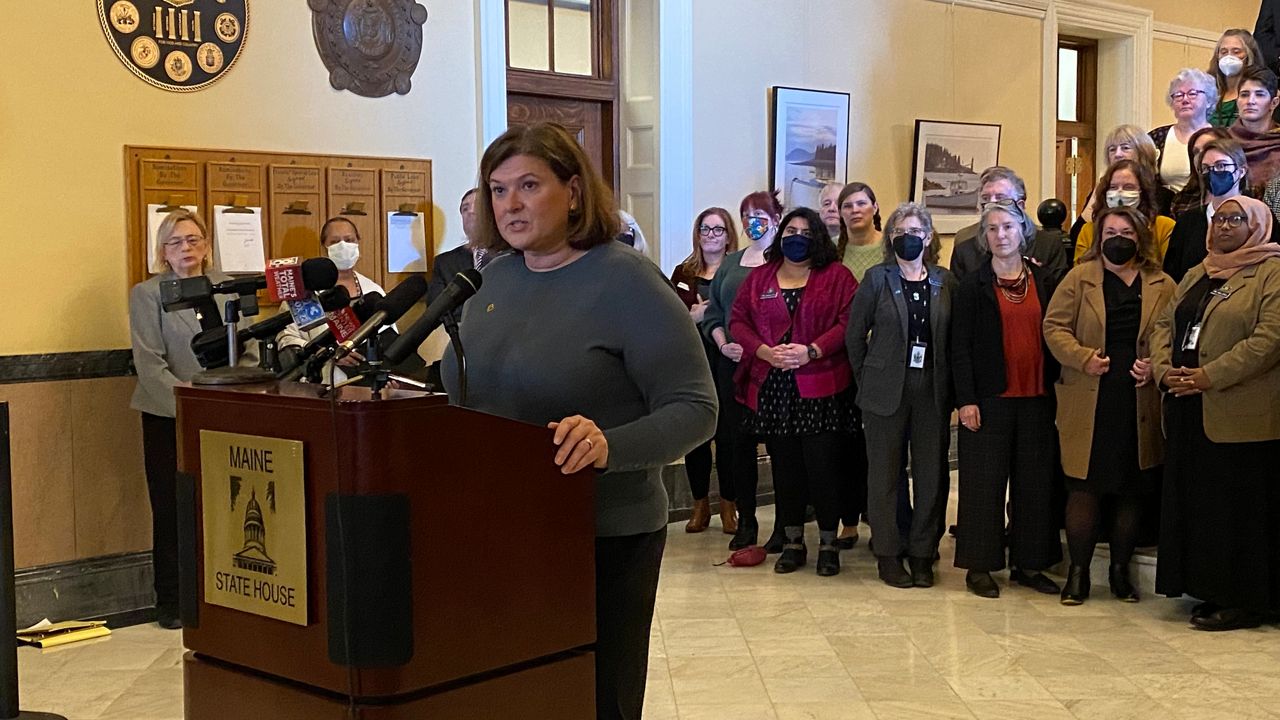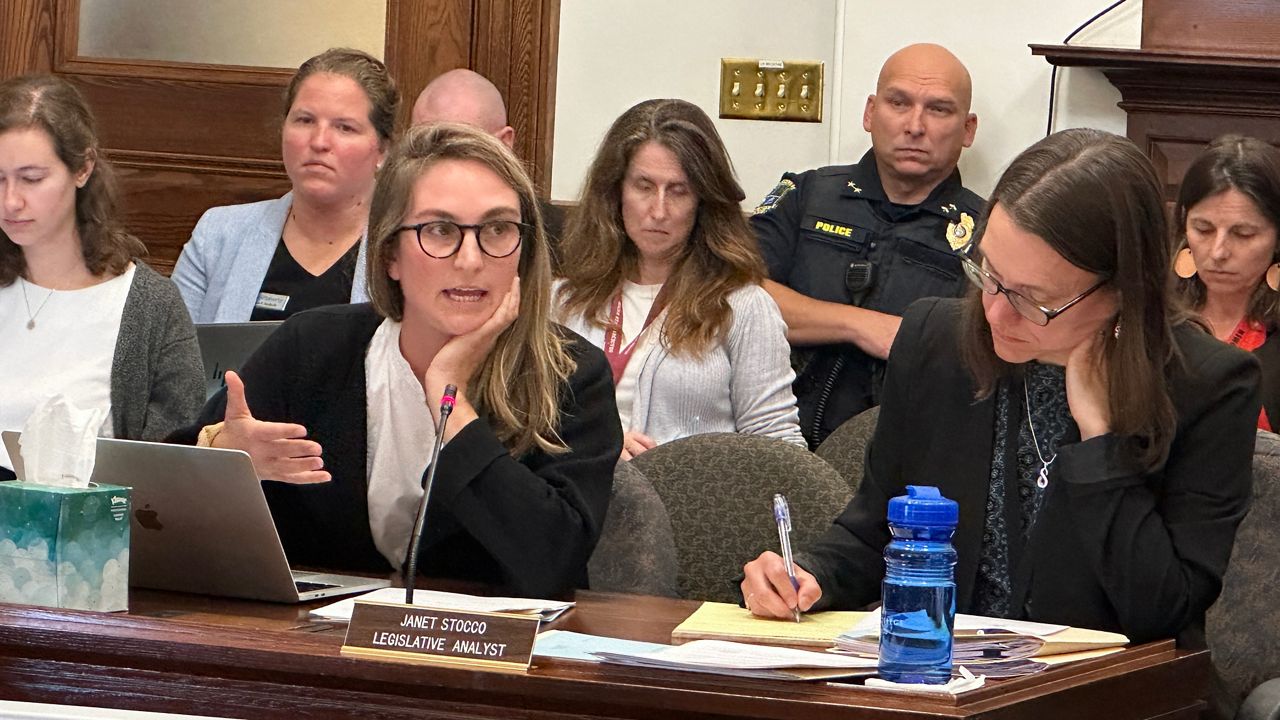State Democrats are proposing to expand abortion rights in Maine, including a measure that would allow women to terminate a pregnancy later in their term if their doctor recommends the procedure.
Gov. Janet Mills said Tuesday that change is necessary. She cited a case in which a Yarmouth woman had to travel to Colorado to get an abortion at 32 weeks because of a rare fetal condition.
“While Maine’s abortion laws are strong, they nonetheless still prevented Dana and other women in a similar position from being able to obtain abortion care later in pregnancy in Maine,” Mills said at the State House, speaking with about 80 Democrats and abortion rights supporters behind her. “The decision to have an abortion should be made by a woman in consultation with her medical provider and no one else.”
Mills said the bill comes just days before the 50th anniversary of the Roe v. Wade decision in which the U.S. Supreme Court guaranteed the right to an abortion.
But in June, the court overturned that decision, leaving it up to the states to decide whether women can have access to abortion care. Since then, one in three Americans have lost the right to an abortion in their home state, according to the governor’s office.
Maine Senate Minority Leader Trey Stewart (R-Presque Isle) said he had not yet seen the language of the proposed legislation. But he highlighted the contrast between a Republican focus on reforming the child welfare system and the Democratic focus on abortion rights.
“Isn’t it fitting that we as pro-life folks within the Legislature are talking about how to save lives of children that the state is going to take responsibility for and is failing, and results in dead children, and they are upstairs talking about how to expand abortion and kill more fetuses,” he said. “Apparently that’s their priority.”

Even prior to the June decision, the Maine Legislature passed laws to prevent protesters from blocking health clinics, require public and private insurance coverage of abortion services and expand services in all parts of the state.
Unlike other states, Maine has had a law on the books since 1993 that gives women the right to “terminate a pregnancy before viability.”
The proposed law would not replace the term viability, but would allow doctors “to use their best medical judgment” on whether a patient could have an abortion, said Nicole Clegg, chief strategy and impact officer for Planned Parenthood of Northern New England.
Democrats will introduce three other pieces of abortion-related legislation this session, including measures to strengthen protections for health care providers who treat those who travel to Maine for an abortion, one that would reduce co-pays and another that would prevent cities and towns from enacting ordinances to restrict abortion access.
Senate President Troy Jackson (D-Allagash) and House Speaker Rachel Talbot Ross (D-Portland) are co-sponsoring the bill to allow abortion later in a pregnancy.
“Our proposed legislation makes clear that we will treat abortion for what it is, a safe medical procedure,” Talbot Ross said. “We will make it clear we trust medical professionals to provide care that is in their best judgment.”
Across the country, most abortions are banned in 13 states and in 27 states, including Maine, the procedure is either legal or legal but limited, according to the New York Times.
In the other 10 states, courts have blocked bans or there are strict limits on when an abortion can be performed, according to the Times.
“Extremists will stop at nothing until abortion and even birth control is out of reach for all Americans,” Clegg said. “But here in Maine, voters elected reproductive rights champions to ensure our freedoms aren’t infringed upon by anti-abortion extremists.”







)

